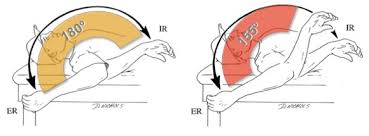gird
英 [ɡɜːd]
美 [ɡɝːd]
- vt. 束缚;佩带;做准备
- vi. 准备;嘲骂
- n. 嘲笑
星级词汇:

记忆方法
1. yard (Old English geard "enclosure") => gird "put a belt or girdle around; encircle, surround".
2. gird + -er => girder.
3. 同源词:garth, gird, girth, girdle.
4. 其它相关的同源词:garden, yard, orchard.
2. gird + -er => girder.
3. 同源词:garth, gird, girth, girdle.
4. 其它相关的同源词:garden, yard, orchard.
中文词源
gird 系上
来自PIE*gher, 围,绕,词源同yard,garden.
英语词源
- gird (v.)
- Old English gyrdan "put a belt or girdle around; encircle; bind with flexible material; invest with attributes," from Proto-Germanic *gurdjan (cognates: Old Norse gyrða, Old Saxon gurdian, Old Frisian gerda, Dutch gorden, Old High German gurtan, German gürten), from PIE *ghr-dh-, suffixed form of root *gher- (1) "to grasp" (see yard (n.1)). Related: Girded; girding.
Throughout its whole history the English word is chiefly employed in rhetorical language, in many instances with more or less direct allusion to biblical passages. [OED]
As in to gird oneself "tighten the belt and tuck up loose garments to free the body in preparation for a task or journey."
权威例句
- 1. David gird up his loinsand go out to meet the giant goliath.
- 大卫准备就绪,出去与巨人歌利亚交战.
- 2. Gird your loins, sharpen your steel, you will soon be tested.
- 系好你的盔甲, 磨利你的武器, 很快你的技巧就会得到检验.
- 3. The safety and stability of gird is a whole systematic engineering issue.
- 电网的安全稳定是一个整体性的系统工程.
- 4. A standard switchyard connects the coilPCS to the utility gird.
- 线圈与PCS经 标准开关站与电力网联接.
- 5. Can the British gird up their loins and move ahead?
- 英国人能鼓足勇气继续前进 吗 ?
